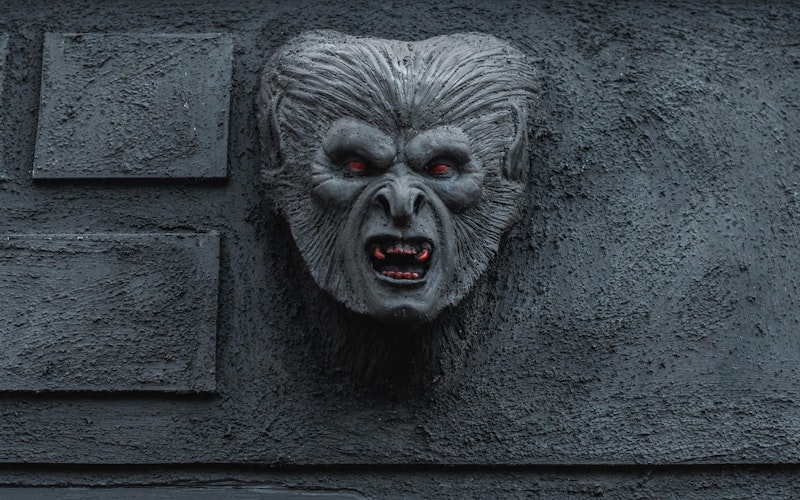
Culture At Large
Virtue and Vampires in Bram Stoker’s Dracula
I’ll admit it: I found Mina’s character to be insufferably annoying when I read Bram Stoker’s classic novel, Dracula. She was too sickly sweet, too obedient, and as transparent as a ghost. In short, she didn’t seem to possess the grit that I like to see in female characters. After reading some critical commentary, I realized something else about Mina that rubbed me the wrong way: she is a 19th-century caricature of virtue, an unattainable, sexist standard written by a man.
Despite the religious language that Bram Stoker uses to describe Mina and despite the religiosity she herself adheres to, her salvation seems misguided because it is dependent upon performance and an innate “goodness.” This leads to something we'd describe today as victim-blaming.
Mina is a portrait of what men in 19th-century England would have expected from a wife. Importantly, she is a bastion of virtue: a word which, at that time, was intrinsically connected to virginity. A virtuous woman was almost childlike, aspiring to marry a man who would take care of her physical and financial needs. Sex was for the highest purpose of child-bearing.
Writing for The Atlantic, Karen Swallow Prior explains the false equation that this sense of virtue creates: “For the Victorians, virtue and virginity were synonymous. A woman who lost her virginity outside of marriage—regardless of the circumstances surrounding that loss—was ruined. For all intents and purposes, then, a woman's virtue resided in her hymen. Will—a woman's will at least—played little or no part in the business. The Victorians, certainly not the first or the last to do so, had confused virginity, a physical state, with virtue, a metaphysical condition.”
In Dracula, Mina is virtuous—until the vampire begins to prey on her. Chapter 21 describes a terrifying scene in the bedroom of Mina and her new husband, Jonathan Harker. Jonathan is in a deep sleep or stupor while Mina, powerless against the violent assault of Count Dracula, is being forced to drink blood from a cut in the vampire’s chest. The scene is a sick inversion of a breastfeeding Madonna, as Dracula compels Mina to feed upon him in a “terrible resemblance to a child forcing a kitten’s nose into a saucer of milk.” Mina later describes Dracula’s hauntingly spiritual words: “And you, their best beloved one, are now to me, flesh of my flesh; blood of my blood; kin of my kin; my bountiful wine-press for a while; and shall be later on my companion and my helper. …But as yet you are to be punished for what you have done. You have aided in thwarting me; now you shall come to my call.” What a thinly veiled picture of sexual assault.
Mina's salvation seems misguided because it is dependent upon performance and an innate “goodness.”
Though Stoker uses words like “victim” to describe Mina in this passage, his ultimate portrayal of her is that of someone who has been ruined and needs rescue. And sadly, this is Mina’s view of herself. It’s a twisted but unfortunately common version of Christianity, where she believes she “deserved” what happened to her because she was not good enough and is now damaged beyond repair. When she tries to kiss her husband and draws away, seeing some of the vampire’s blood on his shirt, she cries, “Unclean, unclean! I must touch him or kiss him no more. Oh, that it should be that it is I who am now his worst enemy…”
Mina is clearly not at fault for the vampire’s aggressions and assault on her, as she was powerless against his advances. But despite this, she still views herself as someone cursed: “Oh my God, my God! What have I done? What have I done to deserve such a fate, I who have tried to walk in meekness and righteousness all my days? God pity me!” Here, Mina connects her assault to a false sense of guilt. None of Dracula’s victims “deserve” his preying on them. He is a twisted aggressor who feeds on the weak for his own selfish gain and gratification. But Mina still struggles with a sense of “unholiness.”
I can’t help but associate this element of the novel with the flurry of women in the last year who have finally shared their horrifying stories of sexual assault. Victim-shaming and blame-casting are so common, even in the Christian community, that many men and women who’ve been subjected to sexual aggression feel exactly like Mina did. They wonder why they, who have tried to live good lives and be good people, deserved something like this.
In truth, no one, no one, no one, deserves sexual assault, just like the virtuous Mina did nothing to ask for Dracula’s aggressions. And most importantly, the survivors of assault are not ruined, unholy, or unclean. In fact, they are strong beyond imagining, an army of men and women who, when joined together in truth, can take down the vampires who have abused their positions of power. As Christians, we know that our selfhood, our “goodness,” comes from our identity in Christ. Our attempts at virtue will always fall short, but his salvation redeems us, from the worst in our hearts and in the world.
Topics: Culture At Large